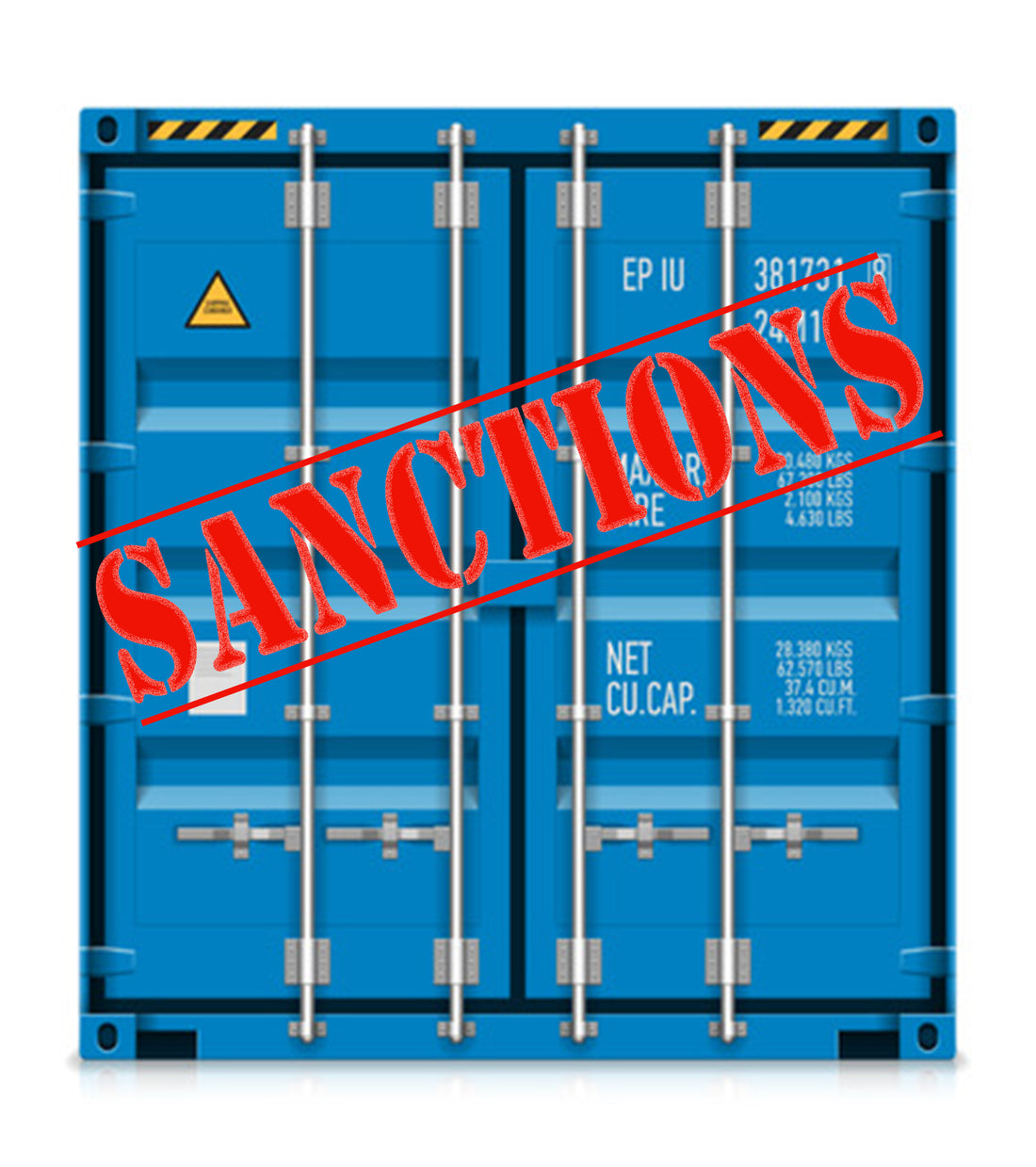Categories
- Anti Money Laundering
- authenticated
- automatic extension
- bill of lading
- compliance
- Counter Terrorist Financing
- extension
- financial crime
- Financial Guarantee
- Guarantee
- Independent Guarantee
- Iran
- ISP98
- LC
- LC Law
- LC Statistics
- Red Flags
- Sanctions
- Standby LC
- SWIFT
- Trade Based Financial Crime Compliance
- tranport documents
- UCP500
- UCP600
- wrongful dishonor

In this blog post we will explore the topic of Sanctions in a broad sense, and discuss their impact on trade finance. Additionally we'll look at the available means of remaining complaint with sanctions regimes. At the bottom of this page are key resources to help your organization deal with this major facet of trade based compliance.
What is an Economic Sanction?
An Economic Sanction is the deliberate limitation or cessation of trade and financial intercourse by a nation or intergovernmental body with a specified nation, region, government, industry, group, or person as a response to, or in an effort to, alter social, political, economic, or military policy.
How are Sanctions Used?
Economic sanctions are designed to accomplish national or international policies by restricting certain activities of persons, organizations, or nation states and their citizens short of war. In a sense, they involve waging war by economic rather than military means. They are employed when there is a perceived risk to national and global peace and security or in instances of human rights violation. While each nation can create its own system of implementing and enforcing its own sanctions regime, there are also internationally cooperative efforts. Sanctions exert pressure on persons, organizations, or political regimes to comply with the law or policy of the state or the organization imposing the sanctions.
Sanctions Regimes
There are many different sanctions regimes, often with contradictory requirements that an international financial agency must be aware of. To name a few regimes, there are sanctions from the United Nations, the U.S. (administered by OFAC and including U.S. Country Based Sanctions and U.S. Targeted Sanctions), the European Union, Hong Kong, the U.K., and Singapore.
Most nations make their sanctions easily accessible so they can be noted, observed, and followed. Banks may also contact export / import organizations and licensing agencies for information.
Detecting Sanctions Violations
Economic sanctions can be difficult to manage, particularly at a multinational financial institution that can find itself subject to numerous, oftentimes contradictory, sanctions regimes. Any sophisticated international financial institution needs an all-inclusive system in place to ensure it does not find itself in violation of a sanction. This includes training its staff and updating the staff on changes to the regulatory landscape.
As part of standard compliance measures, a financial institution should utilize automated screening software to check names, companies, and nations against all of the applicable sanctions lists. These software systems screen every incoming payment order for names or aliases on the SDN list, or association with target countries. Some systems refer flagged transactions to a reviewer, while others even automate the reviewing process. Often banks will rely on third party vendors to provide such services. The use of an automated system will not serve as an absolute defense in criminal or civil proceedings based on sanctions violations. However, it does work in favor of a defendant bank when determining possible mitigation, in particular if such an automated system is employed along with a good faith manual and electronic compliance efforts throughout the institution and its operations.
More on Sanctions
As should be clear from the above information, it is critical for the compliance team in a financial institution to be on top of the latest updates and have a plan in place. Regular training and information gathering is essential, as compliance requirements are constantly changing.
Top resources include:
The Certificate in Trade Finance Compliance (CTFC)
Recently, the London Institute of Banking & Finance (the organization responsible for the CDCS, CITF, and CDSG trade finance certifications) unveiled its new Certificate in Trade Finance Compliance, or CTFC. Geared toward Trade Finance Operations Staff, Relationship Managers, Bank Audit and Compliance Staff, and Risk Managers, this professional certification program covers key areas in trade based financial crime, including:
- Anti Money Laundering
- Countering Terrorism Financing
- Sanctions & Anti Boycott Provisions
- Weapons of Mass Destruction
- Bribery & Corruption
- Commercial Fraud
Trade Based Financial Crime Compliance, the book. Taking a comprehensive approach, this book approaches trade based financial crime from the ground up: establishing the fundamentals of trade, and working up to the various types of trade based crime, including practical solutions to navigating the tricky compliance landscape for compliance staff, bank managers, and practitioners. Used as the source material for the aforementioned CTFC course, as well as for much of the information provided in this blog post, Trade Based Financial Crime Compliance is currently the most comprehensive written resource available on the topic. To learn more about this title and to purchase, click here.
Wolfsberg Trade Finance Principles
Published in cooperation between the Wolfsberg Group, the ICC, and BAFT, this 66 page document provides useful guidance for compliance in trade transactions. This free resource is helpful in promoting standardization in trade finance compliance.
Related
Trade based compliance matters are regularly covered by the IIBLP blog, as well as Documentary Credit World. See previous blog posts on the BAFT Anti Money Laundering Paper, Back to Back LCs and Money Laundering, and the Wolfsberg Paper. For a brief introduction to Trade Based Money Laundering, see our recent post on that topic.





